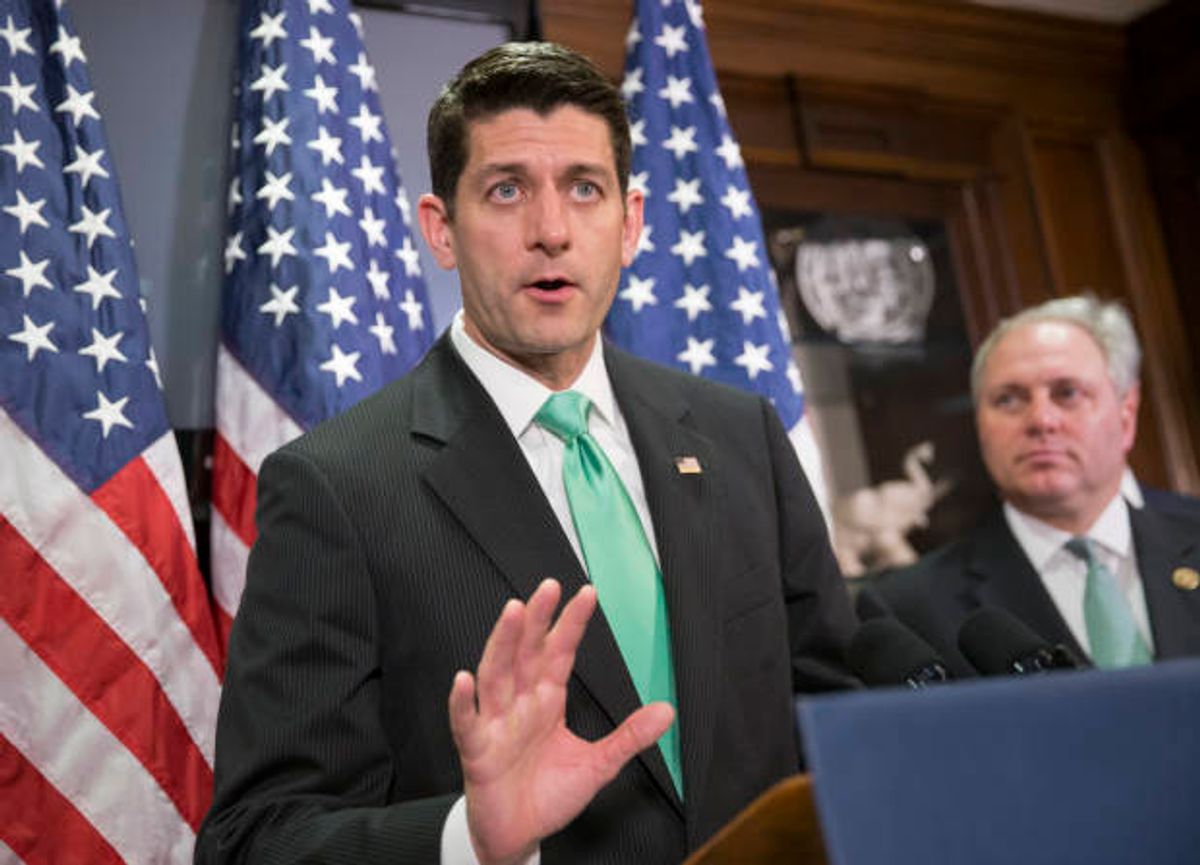The Republican Party is going through a leadership crisis. That’s to be expected, given that its two leading presidential candidates are an orange fascist nightmare and a smugly unlikable ideologue. But, as much as party elites might hate it, one of those two candidates is going to be the face of the Republican Party in the November elections, and at this point the most likely outcome is that the GOP will nominate Donald Trump to take on Hillary Clinton. Trump has spent the past few months ripping wide the various fissures within the Republican Party, and should he lose on Election Day, whoever is left in the GOP will face the herculean task of rebuilding the party in the post-Trump apocalypse.
That brings us to Paul Ryan, the speaker of the House and the only Republican with a national profile who seems to enjoy cross-party appeal. Ryan gave a big speech Wednesday that he and his office teased as an address on “the state of American politics,” and it was widely expected that he would discuss Trumpism and try to strike some balance between embracing the likely nominee and rejecting the violence and extremism that have attended the Trump campaign.
But Ryan didn’t do that. He didn’t mention Trump at all. Instead he commented generally on the poor state of discourse in the country and bemoaned the lack of trust in governing institutions. That provided the jumping off point for a treatise on “what politics can be” in America, in which Ryan spoke with optimism about how government should function:
We don’t resort to scaring you, we dare to inspire you. We don’t just oppose someone or something. We propose a clear and compelling alternative. And when we do that, we don’t just win the argument. We don’t just win your support. We win your enthusiasm. We win hearts and minds. We win a mandate to do what needs to be done to protect the American Idea.
It was perversely appropriate for Paul Ryan to deliver this speech, with those lines, on March 23: the six-year anniversary of President Obama signing the Affordable Care Act into law. The Republican response to the ACA’s passage has been to scare people – you’ll lose your coverage and then probably be murdered by the death panel – and to oppose it without offering an alternative. There have been God knows how many votes to repeal or weaken the ACA in Paul Ryan’s House of Representatives over that six-year time period, but the number of legislative alternatives to Obamacare put forth by the GOP can be counted on zero fingers. The Republican policy during the Obama administration, on healthcare reform and pretty much every other issue area, has been to stoke fears and wring political benefit from unyielding opposition.
Ryan’s comments yesterday were an implicit rebuke of the course he and the Republican leadership pursued from the moment Barack Obama first took the oath of office. Ryan, of course, wasn’t so bold or honest to actually state outright that this political dynamic he laments was the product of his party’s deliberate strategy. Nor did he acknowledge that his speakership is a product of that strategy – hard-line Obama opposition powered the Tea Party wave that gave Republicans control of the House, and the dysfunction that arose from hard-line Obama obstructionism bounced John Boehner from the office, clearing the way for his rise. Nor did he indicate that the same toxic political swill that took down Boehner contributed to the rise of Trump. But still, there was the speaker of the House saying that the last eight years of Republican politics have run contrary to the best traditions of American politics.
I don’t know if Ryan actually believes this, but he’s clearly looking ahead to a time in the near future when the Republican Party has been brought low by Trumpism and finds itself in a state of existential panic. Today’s speech was Ryan’s first stab at positioning himself as the person to take control of what remains of the GOP and shape it according to his own governing vision – hugely regressive tax cuts paired with a slashing of the social safety net. All you need is “someone willing to put policy on paper and promote it passionately,” Ryan said, and he sees himself as that person.
Of course, that’s far easier said than done. A post-Trump GOP would almost certainly be in for a prolonged civil war and might even crack up altogether. And if Trump does lose, that means Republicans will, in all likelihood, be dealing with President Hillary Clinton. As much as Paul Ryan seems to value the idealized state of politics in which issues and policies are debated without personal attacks and base rhetoric, it seems unlikely that a Clinton presidency would inspire among his fellow Republicans a desire for reasoned discourse.

Shares